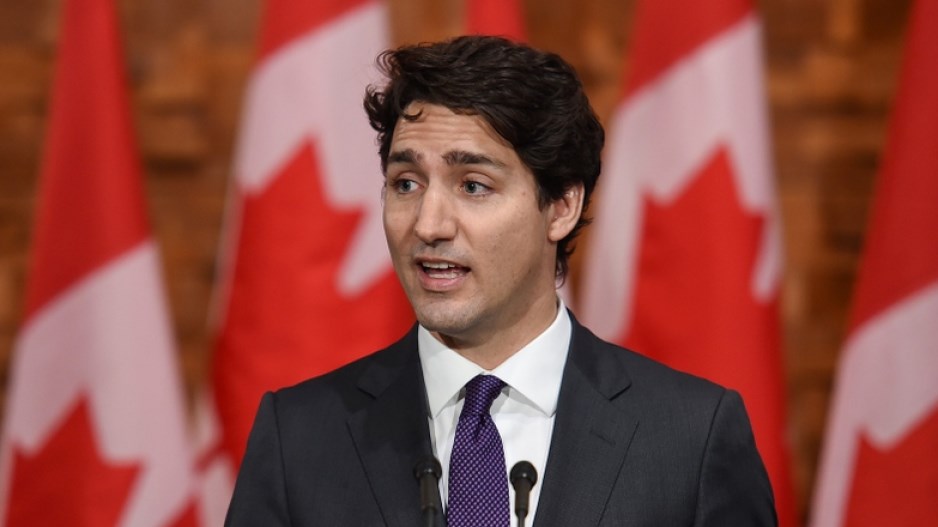What happened: The federal government has tabled a more than $1 billion response plan to help the country manage the economic and health impacts of COVID-19.
Why it matters: Central banks, governments and agencies around the world are introducing measures to ease the virus's economic impact, which is expected to slow the pace of global growth.
The Canadian government revealed a more than $1 billion COVID-19 response package on Wednesday.
The announcement includes health-related funding, and support for businesses and employees financially impacted by the global spread of the coronavirus.
Under the plan, businesses experiencing a downturn due to the virus will be eligible for employee income support for up to 76 weeks. Normally, Canada's work-share program provides compensation to struggling employers for up to half that length of time. The program allows companies to keep workers employed and paid even if worker hours are reduced.
The plan also waives the mandatory one-week waiting period on Employment Insurance (EI) claims, allowing individuals who are in quarantine or who have been directed to self-isolate to receive pay in the first week of their claim. The federal government noted it is exploring additional measures to support Canadians who may not be eligible for EI sickness benefits.
“Our message to Canadians is clear: to every worker and business, in every province and territory, we have your back and we will get through this together," stated Prime Minister Justin Trudeau in a news release.
Provinces and territories will receive $500 million for critical health system needs, such as access to testing and enhanced monitoring. Federal public health measures — including enhanced surveillance, increased testing and support for First Nations and Inuit communities — will also receive $100 million, in addition to the initial $50 million that has already been committed.
Canadian coronavirus research efforts have been allotted $275 million — an additional investment that is 10 times the size of the federal government's earlier $27 million research commitment.
Beyond the funding announced on Wednesday, the federal government has said it will "act swiftly" to stimulate the Canadian economy through federal lending agencies, such as the Business Development Bank of Canada and Export Development Canada. According to the government, the partnership between federal financial Crown corporations and private sector financial institutions provided $11 billion of additional credit support to 10,000 firms during the 2008-2009 financial crisis.
Businesses may also be entitled to flexibility around their Canada Revenue Agency payment obligations.
The measures come as Canada reports 93 confirmed cases of COVID-19, and one death.
"As we saw an uptick in the total number of cases around the globe, we took additional steps," Trudeau told reporters Wednesday morning.
Last week, the federal government assembled a national Coronavirus committee, chaired by Deputy Prime Minister Chrystia Freeland.
"The reality is, that the number of people affected by the virus around the globe keeps climbing. Canada has been fortunate so far," he said. "I know that people across the country are worried."
Eighteen days ago, Italy reported less than a quarter of the cases Canada now has. The European country this week implemented a nation-wide lockdown as its number of reported infections surpassed 10,000.
According to the World Health Organization, more than 100 countries around the world have reported laboratory-confirmed cases of COVID-19.
As healthcare systems have scrambled to contain the spread of the virus, central banks and governments the world over have begun introducing measures to ease the economic burden of COVID-19 and shore up medical responses.
Australia unveiled a US$1.6 billion health package on Wednesday. The Bank of England slashed its bank rate by 50 basis points to 0.25 per cent overnight, which follows emergency rate cuts in Canada and the United States. The White House has promised "major" and "dramatic" measures to support the U.S. economy. Italy has increased its Coronavirus-related spending to 25 billion euros.
The economic research firm IHS Markit is now forecasting global growth to slow to 1.7 per cent in 2020 — a 32 per cent decrease from its February forecast of 2.5 per cent.
The International Monetary Fund — which has made US$50 million in support available to low-income and emerging market economies — expects global economic growth this year to be slower than it was in 2019, noting that the extent of COVID-19's economic impact remains unclear.
"There are a range of scenarios that we are facing," said Trudeau.
In an email to BIV on Tuesday, the provincial government confirmed it is working with its federal counterpart on support for affected workers, and on broader supports for the B.C. economy and impacted industries.
"We do know that the economic impacts under any scenario will be temporary, and we know that B.C.’s economy remains resilient. We built considerable prudence into Budget 2020," wrote a spokesperson for the Ministry of Finance.



